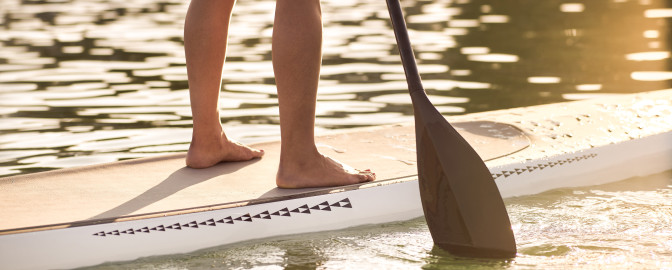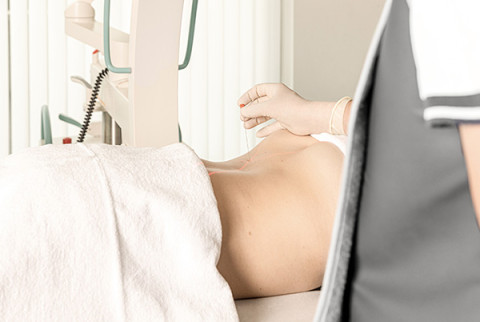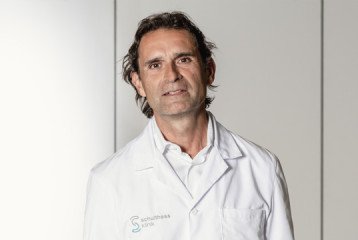Neurology
Annual Report 2022

The Neurology department offers the entire spectrum of neurological diagnostics and treatment. As an orthopaedic clinic, we place a strong focus on peripheral neurology, i.e. nerve disorders of the spine, arms and legs. However, we also treat all other areas of neurology such as movement disorders (e.g. Parkinson’s disease or dystonia), headaches, multiple sclerosis, dizziness, epilepsy, dementia disorders and so on.
Broad expertise as the foundation
Our team consists of 12 experienced neurologists. Many have additional qualifications such as manual medicine or interventional pain treatment. Thanks to the close interdisciplinary cooperation with our orthopaedic departments and rheumatologists, patients benefit from comprehensive expertise in neuro-orthopaedic issues.
Since the 1980s, colleagues from neurology have worked particularly intensively with the surgical spine team, forming a “Spine Unit”. For example, our Neurology department is often involved in the diagnosis, treatment and electrophysiological monitoring of demanding spinal operations, which is used to ensure maximum safety. The technique used in this case is multimodal intraoperative monitoring (MIOM), which monitors spinal cord and nerve root function during surgery. In 2022 alone, we monitored a total of 815 operations using MIOM.
Saying goodbye to a wonderful role model
Last year we had to say goodbye to Dr. med. Alfred “Fredy” E. Müller, who passed away unexpectedly on 29 May 2022. In 2021, after 14 years as Head of Neurology and after great commitment to the Neurology department and Schulthess Klinik, he transitioned to the role of Senior Consultant and continued to care for patients using his extensive clinical expertise. Under his leadership, the department was constantly developing and growing. In addition to interdisciplinary cooperation, it was always a great passion of his to support young medical talent and to pass on his knowledge.
Sharing and exchanging knowledge
Interdisciplinary exchange and the sharing of knowledge are also central to the Forum for Continuing Medical Education (FomF). In 2022, for example, neurologists from our department were invited to give lectures to internists and general practitioners under the direction of Dr. med. Ute Kretzschmar. As part of this, they pass on their knowledge of important areas of neurology every year.
Research project on back pain as part of the ETH funding programme
With the joint research project “Predicting individual treatment response for injection therapy in low back pain”, Dr. med. Zina-Mary Manjaly (Schulthess Klinik and ETH), Prof. Dr. Catherine Jutzeler (ETH) and Prof. Dr. Ender Konukoglu (ETH) are devoting themselves to the far-ranging topic of back pain. The project was selected for the renowned ETH funding programme “Personalized Health and Related Technology” (PHRT). The funding programme combines ETH’s technological knowledge with clinical expertise to drive forward the personalised medicine of the future.

This allows knowledge from neurology, data science and artificial intelligence to come together. The aim of the three-year project is to develop new diagnostic methods to predict which patients with back pain will benefit most from an infiltration, and which clinical parameters are particularly suitable in individual predictions. Our clinical expertise in neurology regarding infiltration therapies is crucial here.
Movement as an important indicator
Many of our patients have problems specifically with their mobility and movement. Walking is one of our most important everyday skills and can be impaired, especially by neurological and musculoskeletal diseases.
In everyday clinical practice, the function of “walking” is difficult to measure and define in objective terms, but it is very important to do so for documenting the course of gait disorders and the success of therapies. In 2022, we began offering patients a new method. The company Magnes has developed high-tech shoes equipped with sensors to provide automated gait analysis. This data helps us to evaluate therapies and assess the course of diseases. We have been working with Magnes since 2022 – always with the aim of helping our patients get back to healthy movement.



